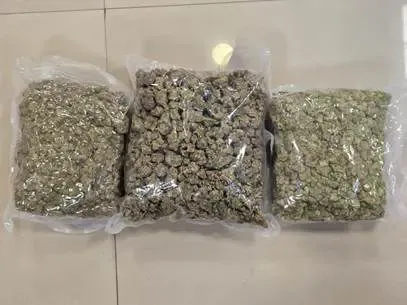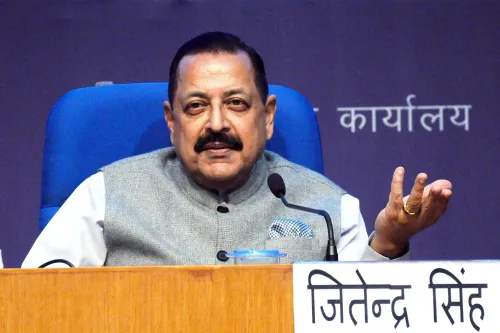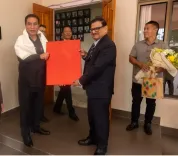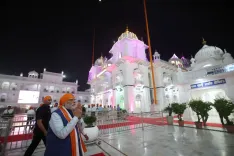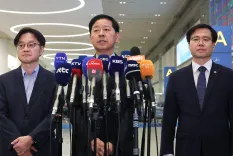Significant Achievement: India's Metro Network Becomes the Third Largest Globally
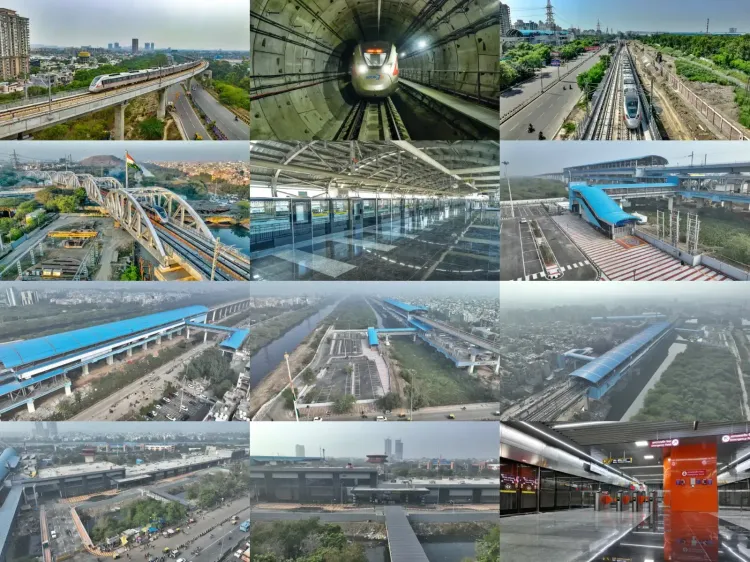
New Delhi, Jan 5 (NationPress) India has reached a significant milestone by expanding its metro network to 1,000 kilometres, thereby securing its place as the third-largest metro system in the world.
This outstanding accomplishment follows the announcement of new metro initiatives and the Namo Bharat program for Delhi under the guidance of Prime Minister Narendra Modi.
The evolution of India's metro network began in 2002 with the introduction of the modern metro by former Prime Minister Atal Bihari Vajpayee in Delhi, culminating in this nationwide milestone. The growth and expansion have been remarkable under PM Modi's leadership, especially post 2014.
In the last decade, the metro network has experienced a threefold increase, with an additional 1,000 kilometres added to its length.
The number of states with metro services has increased from five to eleven, and the number of cities benefiting from metro connectivity has surged from five to 23.
Daily passenger ridership has also seen phenomenal growth, rising from 28 lakh in 2014 to over one crore, representing a 2.5 times increase. Additionally, the total distance covered by metro trains has tripled, increasing from 86,000 kilometres to an impressive 2.75 lakh kilometres.
Under PM Modi's vision, the government is dedicated to providing seamless, affordable, and modern urban transport to improve travel ease and enhance the quality of life for millions.
As part of these transformative efforts, PM Modi is scheduled to ride the Namo Bharat Train from Sahibabad RRTS Station to New Ashok Nagar RRTS Station on Sunday morning.
This journey will inaugurate the 13-kilometer stretch of the Delhi-Ghaziabad-Meerut Namo Bharat Corridor. Constructed at an estimated cost of Rs 4,600 crore, this corridor will significantly improve regional connectivity between Delhi and Meerut, offering millions high-speed and comfortable travel options.
In addition to the Namo Bharat corridor, PM Modi will inaugurate a 2.8-kilometer stretch of Delhi Metro Phase-IV between Janakpuri and Krishna Park. With an investment of Rs 1,200 crore, this marks the first operational segment of Delhi Metro Phase-IV.
Residents of West Delhi, including areas such as Krishna Park, parts of Vikaspuri, and Janakpuri, are set to gain significantly from this development.
PM Modi will also lay the foundation stone for the 26.5-kilometer Rithala-Kundli section of Delhi Metro Phase-IV. With an estimated cost of ₹6,230 crore, this new corridor will link Rithala in Delhi to Nathupur (Kundli) in Haryana.
This initiative aims to bolster connectivity across North-West Delhi and Haryana, positively affecting key areas such as Rohini, Bawana, Narela, and Kundli.
These projects signify another significant advancement in India's urban infrastructure development, highlighting the government's commitment to establishing world-class transport systems that meet the needs of a rapidly growing urban populace.



